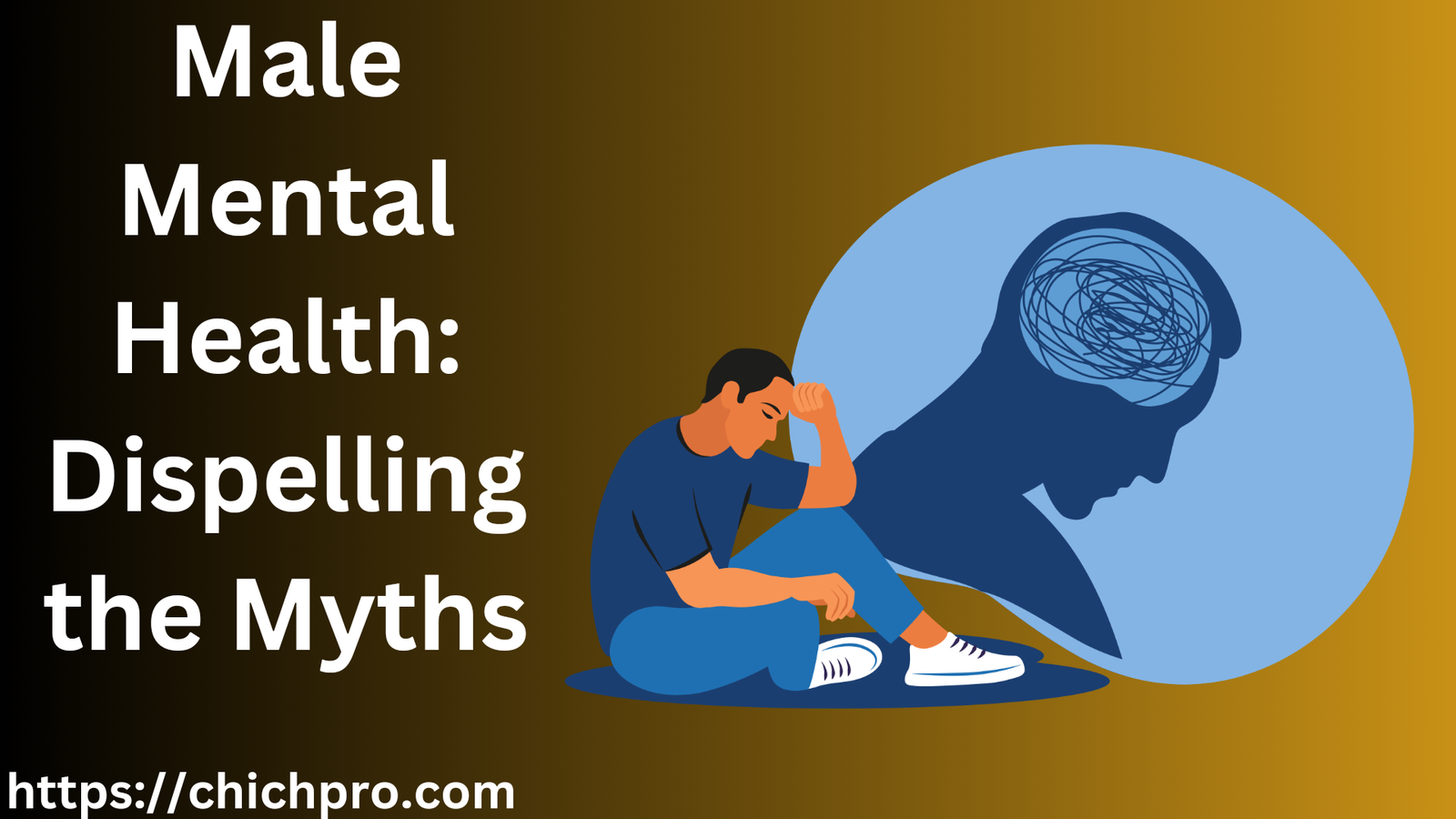Despite being a crucial component of overall wellbeing, mental health is still one of the most stigmatized and disregarded subjects, particularly among men. The particular difficulties men encounter with regard to mental health have gained more attention in recent years. The causes of the taboo around men’s mental health, the obstacles they encounter, and doable actions to support mental health are all covered in this article.
The Mental Health Situation of Men
Men’s Mental Health Statistics
Millions of men worldwide suffer from mental health problems. The World Health Organization (WHO) claims that:
One of the main causes of death for men under 50 is suicide.
Compared women, men less likely seek treatment for mental health issues such substance misuse, anxiety, and depression.
Men frequently discouraged from expressing vulnerability or seeking professional assistance in many countries due cultural conventions and societal expectations.
These figures show how vital it is to combat stigma and establish a safe space for men to discuss mental health issues.
Why Is It Hard for Men to Ask for Help?
Expectations in society
Men generally expected stoic, independent,emotionally resilient according traditional standards of masculinity. It may interpreted as a sign of weakness to acknowledge that you are experiencing stress, anxiety, or melancholy.
The stigma associated with mental illness
Men who deal with mental health concerns often stigmatized. Peers, family, or even oneself may be the source of this stigma, which feeds the circle of unspoken problems and silence.
Ignorance
The symptoms of mental health disorders often overlooked by males, who mistake them for everyday stress or attribute them to outside influences like work demands or family obligations.
Restricted Resource Access
Due financial limitations, regional restrictions, or a lack of knowledge about available options, males may occasionally have limited access mental health resources.
Typical Mental Health Issues Men Face
Depression
Depression frequently manifests differently in men than in women. Men may display signs of grief, such as irritation, aggression, or risk-taking activities, but women may express their feelings freely.
Fear
Men who suffer from anxiety may experience physical symptoms including headaches and tension, difficulty focusing, or ongoing worry.
Abuse of Substances
As a coping strategy, men are more inclined to use drugs or alcohol, which frequently conceals underlying mental health conditions.
PTSD, or post-traumatic stress disorder
Men are more likely to get PTSD, which is typified by flashbacks, nightmares, and emotional numbness. This especially true veterans or individuals have experienced horrific events.
Ways to Help Men’s Mental Health
1. Promote Honest Discussions
It’s crucial to establish safe areas where guys can discuss their feelings without fear of criticism. Colleagues, friends, and family should create a culture that embraces vulnerability.
Address Stigmas
Encourage the belief that asking for assistance a show of strength rather than weakness. The normalization of conversations on men’s mental health can be greatly aided by public figures and community leaders.
Obtaining Expert Assistance
It important urge men get professional assistance, whether it through support groups, counseling, or therapy. As part of workplace wellness initiatives, employers can offer mental health resources.
Encourage constructive coping strategies
Promote stress-relieving pursuits like physical activity, hobbies, or mindfulness exercises like meditation. Mental resilience can be considerably increased by using constructive coping strategies.
Awareness and Education
Increase knowledge of the warning signs and symptoms of mental health conditions. Men can learn when and how get help through campaigns, workshops, and internet resources.
Personal Narratives: Modifying the Story
Hearing firsthand accounts from men who have battled and conquered mental health issues can encourage others to get treatment. No one is immune to mental health issues, as seen by the numerous public figures, sports, and celebrities who have openly discussed their experiences.
FAQs on mens mental health
Q1: What causes males to be more stigmatized for mental health issues?
Men are expected to be strong and emotionless by society, which leads to stigma. Men are discouraged by these stereotypes from showing vulnerability or asking for assistance.
Q2: How can I determine whether a man experiencing mental health issues?
Withdrawal from loved ones, impatience, changes in eating or sleeping patterns, dependence on drugs or alcohol, and depressing expressions are some of the symptoms.
Q3: How can a man who is struggling with mental health concerns be effectively supported?
Encourage professional assistance, listen without passing judgment, and provide helpful assistance such as going appointments him or recommending resources.
Q4: Is there a helpline or internet resource for men’s mental health?
Yes, there are several organizations that offer assistance, including:
The National Lifeline for Suicide Prevention
The Movember Foundation
Hey Guys
Q5: Can men’s mental health be impacted by their physical health?
Of course. Because chronic illnesses, injuries, or poor physical health can have a substantial influence on mental health, it’s critical manage both at the same time.
conclusion
Addressing men’s mental health is a crucial issue that calls for teamwork. We can assist males in overcoming the obstacles to getting help by questioning social conventions, increasing awareness, and creating supportive surroundings. Millions of men throughout the world can have happier, healthier lives if they address their mental health, which an essential component of total health and not a sign of weakness.
We are the first to break the stillness. Let’s build a society where all men are empowered to put their mental health first.





